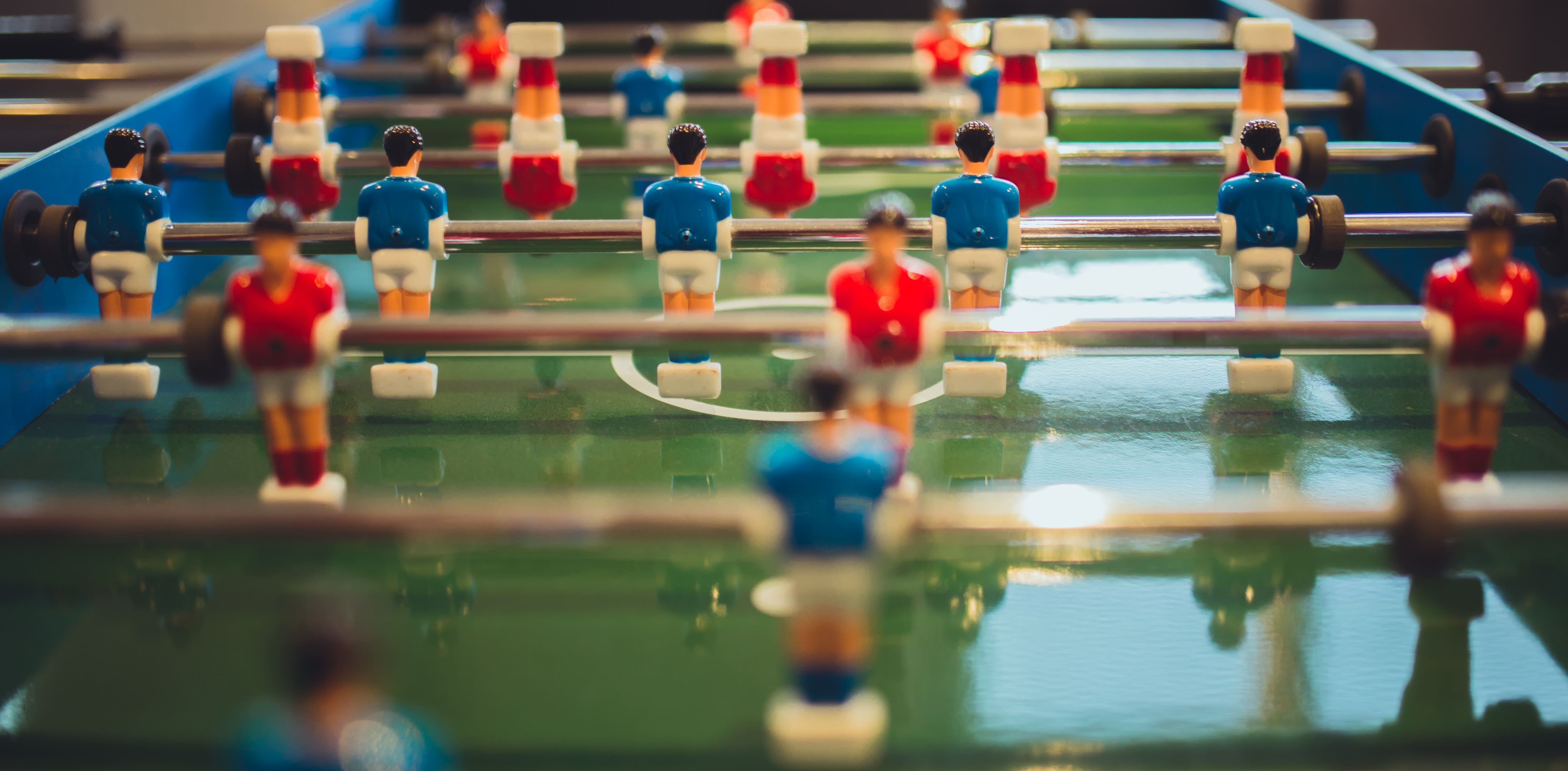It’s finally here – the sun and the Euros 2020. A match made in heaven. And although we may want it to come home, we don’t want to watch it at home.
After waiting for months on end for the return of our beloved pubs, international football presents the perfect opportunity for the hospitality industry to win back some profits.
As financial experts predict that punters in the UK need to drink 124 pints each to save the nation’s pubs (or 976 packets of crisps if you’re teetotal), football fans across the country are as keen as ever to turn their local boozer into the theatre of dreams this summer.
But things still aren’t quite the same. With safety still paramount for pub-goers, table service is still mandatory across bars, pubs and restaurants, to help with social distancing. But is this really a bad thing when it comes to sporting events?
We wanted to determine whether operating with table service during significant sporting events provided a better experience for fans. To achieve this, we analysed two well-anticipated football matches, one pre-COVID-19 and one during.
Here’s what we found...
Table service can minimise missed goals
Looking at the second most-watched English Premier League match – Liverpool FC vs Manchester United FC in January 2020, we found that sales would spike during kick-off and half-time across our pub customer base in Liverpool and Manchester.
As far as that observation goes, it’s not groundbreaking. We would expect this to happen, as punters are fixed to the edge of their seat during a nail-biting game, only leaving for a top-up and toilet stop during half-time.
And although this was the norm, it certainly wasn’t the ideal. Staff suddenly become rushed off their feet for 15 minutes half way through, and during extra time – trying to serve thirsty fans in a short window. Often fans have to queue for longer than they want to, missing the beginning of the second half. No winners there.
But this was an acceptance of pub football. Well, at least it was until the pandemic struck. With social distancing enforced to help reduce contact and, therefore, the spread of coronavirus, fans could no longer queue at the bar. Staff would need to serve customers from their table either on a pay-per-round basis or by setting up a tab.
As England kicked off their Euros group stages on Sunday 13th June against Croatia, we analysed pub spend across the country – this gave us data across a table service-only environment for our comparison.
During England’s first group match, we found that not only was pub spend 16% higher across the country, (compared to the previous Sunday of trading with no football), but that throughout the game, pub sales saw fewer spikes before kick-off and during half time.
Spend was relatively consistent across the duration of the match, showing that table service helped keep thirsty match-goers topped up throughout.
These reduced spikes are not only good news for fans but staff too. Rather than waiting idly for a frantic half-time rush, they can consistently serve customers at a steady pace, leaving less room for error and more time for excellent customer service.
Four ways to make your table service a game-changer
The data shows a positive story – if pubs get it right, table service can improve the customer experience during sporting events. But get it wrong, and it could be costly. Pub owners must prepare their staff for big events and excel on table service to leverage the opportunity. Here are four tips to achieve this.
Take a glass half empty approach
Customers notice the time it takes from ordering their drink to it arriving on the table, and some of them are less forgiving than others. To help cut down waiting times between empty glasses, encourage serving staff to take a proactive approach to drinks orders. This could mean checking in with customers when they’re half-way down a drink to see if they’re ready for another.
Utilise contactless Pay at Table technology
It’s one thing getting the service up to scratch and another the payment. During events, it can be disruptive to ask customers to pay for every single round of drinks, especially if they’re paying individually.
Bar owners that integrate their card machines to their EPOS can create a tab for a table, then settle the bill with customers at the end with precalculated or custom splits using their Dojo card machines. This means customers can pay from the comfort of their seats once the match is over.
Create a bespoke matchday menu
As major sporting events increase a pub’s footfall, it’s savvy to create ways to upsell or increase spend on peak match days. This could be by introducing a new themed drinks menu – or by creating promotions.
And ff you think that fans would be willing to celebrate their team’s win, try promotions for higher-value splurge drinks, such as cocktails or shots. And don’t forget about food and pub snacks either!
Put on more waiting staff
Ultimately, no matter how much preparation you do ahead of a busy trading period, your customers will bear the brunt if you’re understaffed. If you’re forecast to take a lot of money during a big Euros game, consider putting on 1-2 more waiting staff than a usual shift.
Having more staff covering more tables will mean they’re less rushed and therefore more likely to give better customer service, with more opportunities to upsell and increase average transaction values.
Need to revolutionise your customer experience with frictionless contactless payments in your pub? Find out more about Dojo card machines and integrated payments for faster transactions and fewer mistakes.
